The Value of Travel for Creative Writers
Practical Tips from a Professional Travel Writer on How Travel Helps the Creative process
Although fiction has always been my first love (and indeed, this sense of vocation has fueled my own Substack), being a professional writer for 22 years now has made non-fiction a constant priority, as paying markets are easier to find there. That route was entirely unplanned but back at the turn of the millennium, at least, to be a professional writer meant being open to all opportunities.
One special joy in this experience has been travel writing, a genre in which I’ve published very widely at a high level. Yet today’s essay isn’t about my view of all the (however important) tech and business changes affecting the travel-media world these days; it’s simply about the benefits of travel, in and of itself, for creative writers and artists.
This article is supplemented by several original travel photos; since 1 July, I’ve made it a regular practice to start out each month with a special story or essay entirely driven by one of my past or present travel photos (in the 1st Ephemera section). This has been a wonderful way of synthesizing writing and photography and encouraging new ideas that might otherwise never have blossomed.
A Journey that Got Me Thinking
Earlier this summer, I got to travel again. The joy of being back in my favorite natural environment, under the sun and swimming in warm clear waters, re-energized me and encouraged me to reflect on the importance of travel for stoking inspiration, creating memory, collecting information and things even more esoteric, such as promoting auspicious dreams (which are, basically, free stories, gifted to you by your subconscious). Of course, as on any excursion, not everything was always ideal, but even elements of adversity have a certain value, if viewed from the right perspective. Quite often, they add to humor and big-picture value.
Here, I’ll give an overview of some specific things that creative writers should embrace and utilize when traveling. If you already know this stuff, just remember that we have readers of all ages and experience levels here, including some who (gasp!) never experienced the pre-digital age. If life was not more precious then, it was at least irrecoverably different.
Travel Early and Often
There’s nothing like the feeling of motion into the unknown to stimulate one’s creativity. It does not matter whether the distance is long or short, or even whether it’s too a familiar place (for, to paraphrase the philosopher long ago, we cannot step into the same river twice). Indeed, as everything flows, we do too, and we can barely get our feet wet from any single excursion in this world. Hence the insatiable desire for more travel, once one has begun to experience it.
There is definitely a part of me that would welcome the opportunity to wake up in a new place every morning, seeing new things and journeying on as the medieval steppe-nomads did. Of course, such an aspiration is for many reasons impossible, but it’s worth protecting the dream as if a sacred flame in its case.
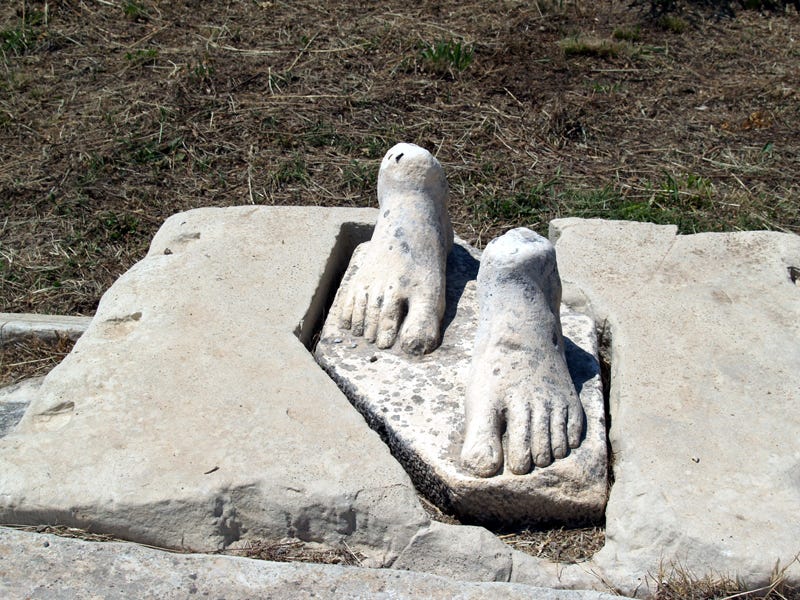
Too many people wait, making elaborate plans for how life should be, or at what stage they will travel; perhaps not so much writers do this as the general population, but the old view of travel as an obligation for summer vacation and seeing extended family at the holidays has always seemed arbitrary to me.
There isn’t really an excuse not to travel, as ‘travel’ is a mutable concept that can be redefined and repurposed to suit all limiting factors, such as health, budget and conditions. When I was very small and had nowhere to go, I’d content myself with exploring and mapping the local forest of my neighborhood, as if it was some great unexplored domain. A trip to your town’s park or exploration of the city subway network might turn out to be as meaningful and as rewarding to your soul and creative work as a Himalayan trek or off-roading in a remote desert.
The reason I say travel early and often is because the very act of travel builds both habits and memories, which will reward much later in life, and long after the initial encounters and experiences are over. Whereas people who are not writers simply enjoy reminiscing over past travels, these adventures make for real material for characters, plots and scenarios for authors, well into the future, in ways that are almost always unpredictable and thus, non-quantifiable.
I have enjoyed too many examples of this to recount. But now that I’ve been working in a new genre (a Greek detective-fiction series) for the last two years, the writing process has forced me to re-examine and re-use accumulated travel experiences in light of new ones, and in new ways, comparing them with bigger-picture historical events of the period. It is only by such research and writing that I can fully see how lucky I have been to experience some really unique and unusual things, and to meet some really extraordinary and unforgettable people from around the world. The fusion of some of the traits and mannerisms of some of these people are now going into the characters of the works, as are the settings of places I’ve visited over the past couple decades.
So especially if you are young, start traveling, and if you have young children, take them too- kids are resilient and curious and (as one of the great old sayings goes) the experience ‘builds character.’ Which is actually true. Even if someday the computer age allows an option to download whatever historical experiences one wishes, it will never be the same as real human experience.
Logistics Details Are the Writer’s Friend
OK, this is one point which I only really came to understand through the experience of having been a professional Lonely Planet guidebook writer, but it applies equally for creative writing, even if it at first it doesn’t seem to. Just hear me out.
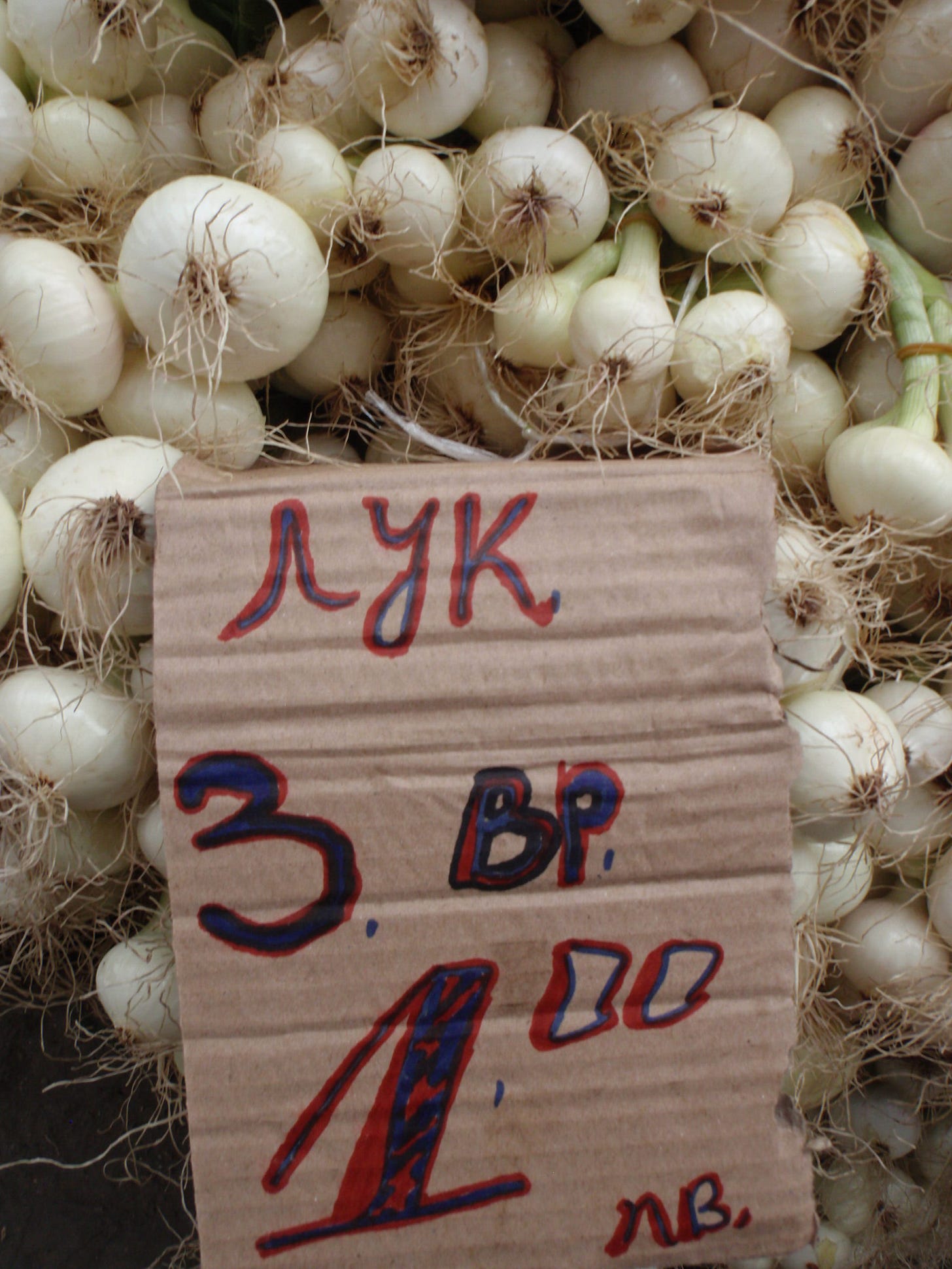
I spent countless hours pounding the pavement of foreign cities and towns, tracking down bus and train schedules, opening and closing hours for museums and other attractions, assessing the dimensions of amenities offered by hotels and restaurants, and so on and so forth. The job forced me to become a ‘detail person,’ which I would never have otherwise been, at least not while blissing out on a travel adventure. But guidebooks require practical facts so that travelers do not, say, miss their ferry or take the wrong bus and never arrive at whatever legendary ruins you have just inspired them to visit in your excited prose.
So, why should the creative writer care about logistics details?
Simply for the reason that they are useful. Every good story involves details as well. To cultivate any sense of urgency or necessity, there must be a reason for things to be as they are. Some sort of causality must prevail in order for readers to make logical sense of plots, and be eager to turn the page.
That said, any author desirous of originality will do well to isolate even the apparently smallest and most unimportant of logistical details. Of course, this is self-evident for the mystery genre, but it holds for every other genre as well. If you are narrating a compelling story, there is always a distinction between the possible and the impossible, with a wide berth between them diving the probable and improbable. Logistical details cover this gap.
This does not mean you need to make a full analysis of logistical details while traveling. It’s good enough to keep any fact that stands out – for whatever reason – in the back of your mind, and to work it into your story when the time is right for it.
This is also a useful means of changing perspective from the negative to the positive. For example, on the recent trip, I had hoped to visit a certain mountain village for the first time, but was disappointed to find that the bus to it didn’t operate on Sundays (when I would be going in that direction). Although the plan was changed, I did not forget the detail, and was thankful that I had at least collected the detail; for now I knew a certain logistics fact that might be useful in a future story.
Practice Languages (Yours and Others), Even and Especially When It Embarrasses, Or Isn’t Needed
One thing that has always amused and confounded me is the ‘don’t ask questions’ approach to travel that many take. I know many people are very keen on figuring things out for themselves, and with the age of maps and other details on Smartphones, most of the time they can do it. For me, however, that is entirely missing the point of travel- that is, getting out of your comfort zone and interacting with other human beings even (and especially) when it is not necessary to achieve one’s short-term goal.
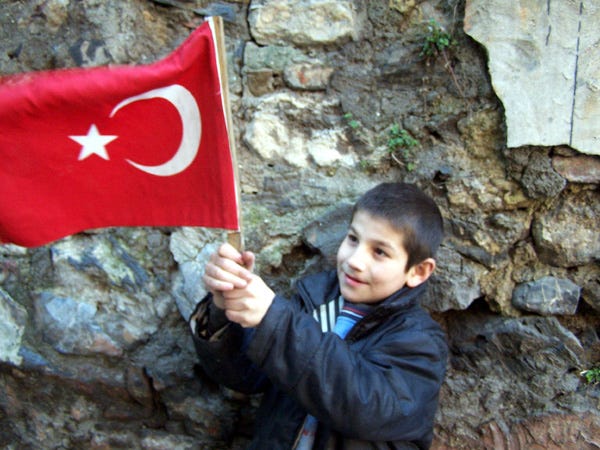
This is especially so because language is the most precious gift any creative writer can wish for. Whether you’re traveling in your own country, and English (or whatever it may be) is the common tongue, or you’re abroad and know a little or a lot of the local parlance, it is vitally important to speak- even if you know what your interlocutor’s reply will be.
This is because dialogue is a main driver of stories, and can even create whole tales out of experiences that are otherwise unremarkable. You cannot make this stuff up, but it happens every day; and for some reason, I have found that such exchanges happen especially while traveling.
This is why I always go out of my way to ask questions, even when I know the answer (which, I’ll readily admit, can exasperate others). But no one says it is odd if, say, a basketball player takes 100 free throws; it’s just practicing a skill. It is not only to get valuable foreign-language practice in a ‘live’ setting, but more importantly, to see how the speaker might become useful as a character in a future story- one that might not even involve the actual scenario in which the original dialogue was spoken. Sometimes there is something about an accent, inflection, pause or other peculiarity that lingers and comes up somewhere else in the writing process. This is why, wherever you travel, the act of speaking will always bring long-term benefits for creative writers.
Practice Photography, Even If You Are Not a Photographer
This is another tip that I only really worked on due to the practical needs of professional travel writing; in many cases, especially in the early years, publishers would not buy a perfectly wonderful article if you didn’t have exemplary matching photographs. For the airline magazines, it was different as they had their own resources. But by and large, it was always good to try and get good, well-lit photos of one’s own to accompany a travel piece.
Now, things are somewhat different with the rise of social media and Smartphones. No one seems to own a regular camera anymore, and yet they snap away a hundred times as often, with the assumption that the result will be good enough for a temporary scroll. That is not the way any creative professional should ever look at it, however.
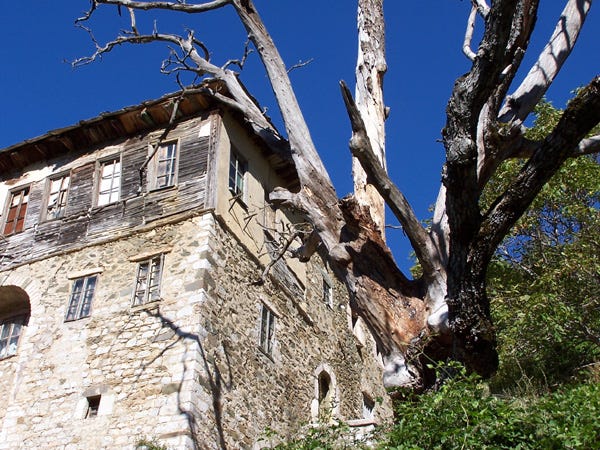
I’m by no means a great photographer, but I respect those who are and have always admired the patience it takes (kind of like fishing) for the sun to reach a certain angle, for the dust to settle a certain way, for people to move in or out of view, etc. If you slow down your photography and try to think like a photographer, it will definitely help your writing. You will begin to notice certain details of the buildings, streets and natural scenery you’re trying to describe. Your sense of time, weather, light and darkness and solar motion will also improve. Chances are, at some point you won’t even need the photos to remember the scene- but the more you practice, the better the chances that you’ll have great photos to return home to and review far into the future, when considering how to use them, whether to accompany a story or simply to help describe the setting of your written work.
Always Collect Materiel
By ‘materiel,’ I simply mean any small objects (ranging from trash to stamps to souvenirs) that bring any emotional or intellectual association to your mind related with your travels, and that can perhaps be useful for future stories. It is not necessary to even have a plan for such items, as often their use will only be known in time.
This does not mean one should become a ‘hoarder,’ but it simply that an object easily acquired on a trip might not be so easily found at home. On my recent trip, I brought back materiel both expected (a local print newspaper) and unexpected (historic postage stamps sold as souvenirs, and a broken paper straw, among others). Some of these were previously considered as relevant for the telling and marketing (never forget the power of a scanner!) of future detective stories, whereas others (like the broken straw) were relevant details to unexpected adventures I experienced on the trip, which I immediately saw as relevant to a future story on the anecdote.
View Your Experiences from the POV of Travel-writing Categories
This is one you might not have expected, but it’s definitely useful if you’re thinking of getting into professional travel writing. In any case, it can be equally relevant to fiction writing, as all travel experience is very easily transposed into a fictional setting.
What I mean by ‘categories’ is just that: compare the top menus of various travel-writing websites and you’ll see, perhaps with different titles or verbiage, a selection of the different types of travel articles out there. These change with the trends and the times, but very generally can be said to distinguish between places, nature/environment, personal experience/reflections, engagement with local cultures, events and festivals, and so on and so forth.
There’s no need for elaborate explanations from my own work, but if you’re interested, it’s all in the drop-down categories under the Travel page on my website. For the purpose of narrative storytelling that is true, but also has some relevance to work that fiction writers might be inspired by, see my comic 2019 story in World Nomads about a luggage mix-up in Belgrade, Serbia, which allowed me to comment on local economic realities and reflect on concepts like trust in the kindness of strangers and the human condition.
Second, perhaps, is my exploration of Macedonia’s Lake Prespa, and the isle of Golem Grad, which featured in Hidden Europe Magazine in 2007. This also involves a unique tale of local cultures and there’s even a great photo of a green tree snake I took, by accident, which rather reinforces the point of patience in photographic adventures.
Last But Not Least… Keep a (Paper) Travel Journal
In the old days, this would go without saying, but for the younger (and older) folks inclined to recording their memories in tidy digital files and phone records, I can only say that unlike your phone, a trustworthy paper journal cannot be damaged by the sun, the sand, or a spilled drink.
Moreover, the physicality of scrawling notes-to-self is an immensely pleasurable thing in and of itself, and one that often leads to sketches, maps, and other imprints of one’s travel experience on paper. And, again (for the all-important burden of marketing) it can easily be scanned after the trip.
People might disagree, but to my mind there is something so freeing about taking out any actual paper notebook while on the road that can never be replicated by an electronic device ever distracting with apps and notifications and reminders, and all the other unwanted signs of a digital intrusion on one’s peace of mind. In a world increasingly tailored to our customs and preferences and comforts, allowing an ever-more-expansive electronic crutch to dominate our lives is bad for human writers. Unplugging for a while and going paper-full – especially while on the road – now seems almost a revolutionary act.
My advice is to enjoy it. Absent the invisible confines of the ‘device,’ you will free your mind to write sentences you never expected. And, later on while rejoining the digital age, you will retrieve these invaluable sentences, phrases and thoughts from a simpler place, and your innate sense of purpose and self-awareness as a writer will lead them to their proper fulfillment.
Happy writing, and happy travels, everyone!





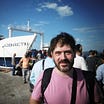
"This is because dialogue is a main driver of stories, and can even create whole tales out of experiences that are otherwise unremarkable."
Manly Wade Wellman made a pulp career out of Appalachian speech patterns.
https://en.wikipedia.org/wiki/Manly_Wade_Wellman
All good reasons and ways to travel, even for those like me who can only marvel at those who can write fiction. But I've always felt cheated by spending anything less than a few months in a new place.